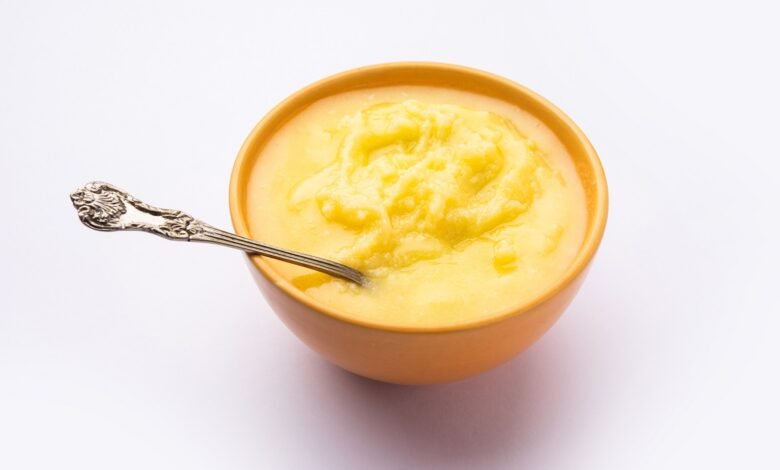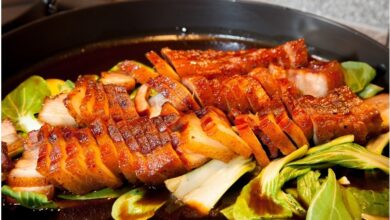Desi Ghee and Weight Loss: Separating Fact from Fiction

Introduction:
Desi ghee, also known as clarified butter, has been a staple ingredient in Indian cuisine for centuries. Despite being considered unhealthy by some, there is a growing interest in desi ghee for weight loss. In this article, we will explore the relationship between desi ghee and weight loss, and separate fact from fiction.
What is Desi Ghee?
Desi ghee is made by heating butter until the milk solids separate and the water evaporates, leaving behind a golden liquid. It is primarily composed of saturated and monounsaturated fats and is high in vitamins A, D, E, and K. In comparison to other cooking oils, desi ghee has a higher smoke point, making it ideal for high-heat cooking.
How Does Desi Ghee Impact Weight Loss?
There is a common misconception that consuming ghee is unhealthy and can lead to weight gain. However, research has shown that consuming desi ghee in moderation can actually improve metabolism and promote weight loss. The fatty acids in desi ghee help the body burn fat for energy, rather than storing it.
The Benefits of Consuming Desi Ghee for Weight Loss
One of the main benefits of consuming desi ghee for weight loss is its high concentration of healthy fats. These fats can improve satiety and reduce hunger, leading to fewer calories consumed throughout the day. Desi ghee also contains butyrate, a type of fatty acid that helps reduce inflammation and improve gut health. Furthermore, desi ghee is rich in conjugated linoleic acid (CLA), which is a type of omega-6 fatty acid found in grass-fed dairy products that have been shown to reduce body fat mass and increase lean body mass in humans.
Incorporating Desi Ghee Into Your Diet
Cooking with desi ghee is simple and can add a rich, nutty flavor to dishes. It can be used as a substitute for other cooking oils, such as vegetable oil or canola oil, in recipes. The high smoke point of desi ghee also makes it ideal for frying and sautéing foods. Additionally, desi ghee is a versatile ingredient that can be used in both sweet and savory dishes. For example, it can be used to make traditional Indian desserts like gulab jamun or added to savory dishes like dal or biryani.
When incorporating desi ghee into your diet, it is important to keep in mind that it is still a high-fat food. Consuming too much desi ghee can lead to excess calorie intake and potential weight gain. Therefore, it is important to practice portion control and moderation when using desi ghee in your cooking.
Conclusion
In conclusion, desi ghee can be a valuable addition to a healthy diet and may even aid in weight loss. Its high concentration of healthy fats and essential vitamins makes it a nutrient-dense food. By incorporating desi ghee into your diet in moderation and practicing portion control, you can enjoy its benefits without compromising your health. Furthermore, the inclusion of desi ghee in a balanced diet can also provide numerous other benefits such as improved digestion, stronger immunity, and enhanced brain function. Therefore, instead of completely avoiding desi ghee due to the misconception that it is unhealthy food, one should explore and embrace its many benefits.





